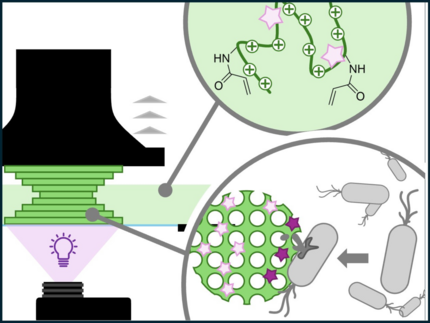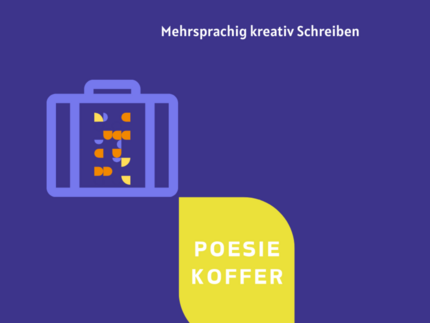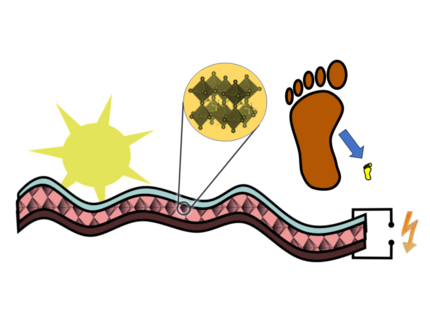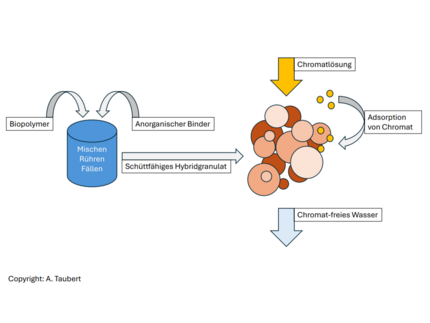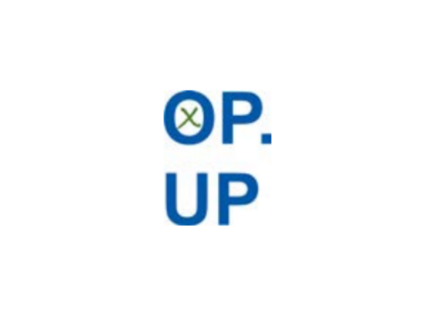Printed filters for germ-free water
Matthias Hartlieb
Department of Chemistry | Faculty MNF
Supported by Potsdam Transfer
The aim of the project is to produce a prototype for 3D-printed water filters for the purification of drinking water, for example in domestic or outdoor areas. The materials are being developed to quickly and reliably remove bacterial germs (e.g. E. coli, legionella, pseudomonads, ...) from potentially contaminated water and render them harmless. Furthermore, these filters will also indicate by colouring whether microorganisms have been removed in order to be able to make a qualitative statement about the contamination of the initially used water. 3D printing will make it possible to produce any geometries in order to adapt filters to any conditions.
Inclusive multilingual creative writing: On the way to the multimodal "Poesiekoffer"
Sara Hauser & Prof. Dr. Winnie-Karen Giera
Faculty of Arts | German Studies/Inclusive German Didactics
Supported by UP Transfer GmbH
Creativity is a key competence for shaping the future and was surveyed by the OECD for the first time in 2022. The development of a multimodal poetry kit for multilingual creative writing is intended to promote the creativity of comprehensive school pupils in the area of language. Such a kit and the didactic preparation of its inclusive methods and materials is a novelty and takes into account the multilingualism concept published by the state of Brandenburg in 2023. The suitcase is intended to empower users in the long term to innovatively design intercultural, literary learning processes and to encourage young people to use all their linguistic resources in creative self-expression and self-efficacy. First tried and tested material drafts are to be transferred into suitcase prototypes in school-university co-operations. Subsequently, video tutorials will be developed to guide (prospective) teachers, university lecturers and educators in using the suitcases.
Flexible Perovskite Solar Foils (PeroFoil)
Felix Lang
Physics and Astronomy | Soft Matter Physics
Supported by Potsdam Transfer
Ultralight and flexible solar foils with high power conversion efficiencies at an affordable price could revolutionize the PV market. Unlike traditional rigid solar cells, flexible foils offer a lower carbon footprint and broader applications due to their lightweight nature. Use-cases range from electric aircraft and space applications to greenhouses and warehouses, which often do not support heavy PV installations. However, combining high efficiency, low weight at a cost-effective price tag was impossible using traditional materials. Project PEROFOIL aims to develop flexible perovskite solar foils with the highest efficiency (>22%), low weight (>8mg/cm2), and highest specific power (2.9W/g). These rely on an ul-trathin halide perovskite absorber, processed from a solution at low temperature directly on flexible foils, thereby enabling the lowest carbon footprints.
Hybrid granulates for the removal of oxoanions from water
Prof. Andreas Taubert
Department of Chemistry | Faculty MNF
Supported by UP Transfer GmbH
The project ‘Hybrid granulates for the removal of oxoanions from water’ aims to produce a new material developed in the Taubert working group, which can remove chromate from water better than current commercial solutions, in larger quantities. This requires the development of a suitable scaling process. Larger quantities are necessary in order to be able to provide potential industrial partners with sufficient sample material and thus develop the material to market maturity in the long term.
OP.UP – Online-Panel University of Potsdam
Dr. Jan Philipp Thomeczek
Department Chair of Comparative Politics | Faculty of Business, Economics and Social Sciences
Supported by Potsdam Transfer
The ‘OP.UP - Online Panel University of Potsdam’ project aims to establish an online panel for recruiting study participants. The panel is to be set up via social media adverts, with an incentive system using shopping vouchers to increase the willingness to participate. In the short term, feasibility will be tested as part of a survey study with two waves for the 2025 federal elections. The plan is to set up a panel of at least 10,000 respondents around one year before the general election and collect the data in two surveys (at the end of 2024 and shortly after the 2025 general election). In this context, it will serve my research to establish the BSW party. In the medium and long term, it should form the basis for the foundation of a survey institute, for example as an affiliated institute of the University of Potsdam. This institute could offer cost-effective surveys for research projects and serve the targeted recruitment of study participants. In addition, such an institute would also be of great interest as a contractor for studies in the fields of politics, media and business.

